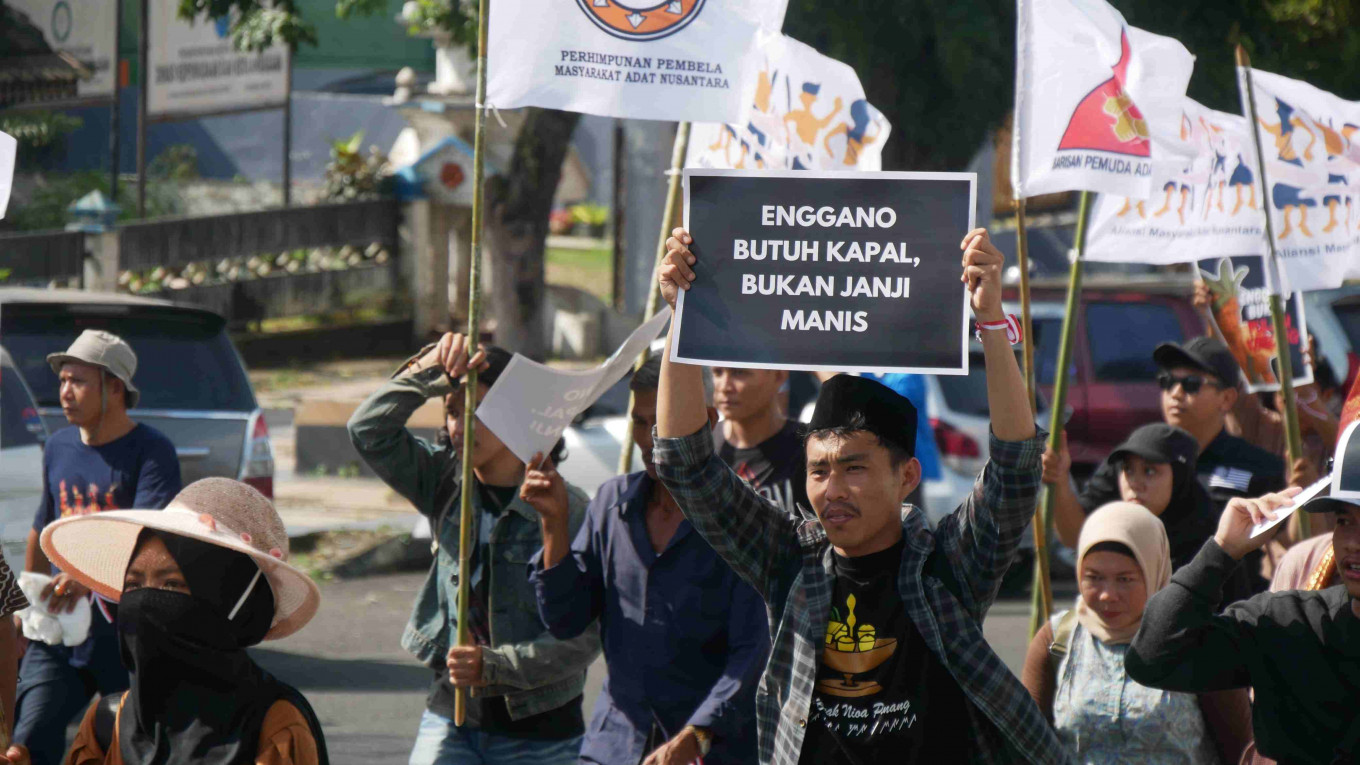Popular Reads
Top Results
Can't find what you're looking for?
View all search resultsPopular Reads
Top Results
Can't find what you're looking for?
View all search resultsDemocracy in Global South: agency as resistance, not reform
Too often, democracy defenders are treated as symbols, when what they need are systems of sustained support.
Change text size
Gift Premium Articles
to Anyone
What if democracy is no longer merely in crisis, but also at risk of irrelevance?
In Southeast Asia, as in many parts of the world, democracy is being hollowed out. Once upheld as a pathway to freedom, justice and public participation, it now often feels like an empty promise.
Institutions designed to serve the public are increasingly unresponsive, opaque or co-opted. Meanwhile, authoritarianism has grown bolder, smarter and more coordinated, using surveillance, censorship and populist narratives to silence dissent and consolidate control.
This is not a theoretical concern. It is a reality unfolding in real time. The question is not simply how to defend democracy as it stands, but whether we can reimagine what it must become.
This reckoning came into sharp focus during a recent global webinar I joined, bringing together civil society leaders, academics and parliamentarians. The discussion did not romanticize the old democratic order, instead, it confronted its failures with candor and urgency.
It analyzed candidly how existing models have failed to protect those most at risk, how elections without equity, representation without voice and liberalism without justice have eroded public trust. Amid these sobering reflections, one theme emerged with clarity and urgency: the centrality of agency.
Agency, the ability of individuals and communities to shape their own futures, is democracy’s cornerstone. And today, that agency is under systematic assault.
In Georgia, a long-time civil society leader spoke of the painful decision to shut down her organization after new laws were passed targeting foreign-funded NGOs. “For the first time in 20 years,” she said, “I felt completely alone. I had to ask my team to leave, it was no longer safe to work on democracy.”
Her story is not isolated. Across Southeast Asia, similar experiences are playing out: Cambodian activists driven into exile, Myanmar’s pro-democracy networks forced underground and Filipino and Indonesian rights advocates smeared as foreign agents or threats to national security.
This democratic crisis is not only institutional, it is deeply personal. It manifests as fear, isolation and abandonment. And yet, within that despair, something powerful endures: the refusal to stay silent. The will to resist. The determination to build something better.
Democracy cannot be rebuilt from the top down. It must be reclaimed from the ground up. That begins with reasserting agency, not as symbolic inclusion or donor-driven consultation, but as a foundational principle of governance. Agency must be grounded in dignity, shaped by lived experience and exercised through genuine participation and accountability.
Authoritarian regimes have capitalized on democracy’s faltering credibility. From AI-driven propaganda to digital surveillance, they are innovating rapidly, and collaborating globally, to control narratives and stifle dissent. They brand democratic actors as destabilizers, malign journalists as enemies of the state and undermine civil society through legal restrictions and smear campaigns.
As global democratic engagement falters, authoritarian regimes are seizing the moment. The retreat of major donors and the fragmentation of global democracy support infrastructure, exacerbated by shifts in United States foreign policy, have left many civic and solidarity platforms under-resourced or dismantled. The result is a shrinking space for coordinated resistance, and an increasingly perilous environment for activists and reformers, especially in the Global South.
Southeast Asia offers many such examples. Civil society groups are being deregistered. Political parties are dissolved. Journalists are jailed. Parliaments are weakened, and peaceful protests are criminalized. Yet the region is also home to deep reservoirs of democratic resilience. From Bangkok’s student protests to Myanmar’s shadow parliaments, from feminist networks in the Philippines to legal advocates in Jakarta, people continue to push back.
But they cannot, and should not, do this alone. That democratic spirit must be nurtured through infrastructure: legal support, mental health services, secure digital tools, flexible funding and spaces to grieve, strategize and rebuild. Too often, democracy defenders are treated as symbols, when what they need are systems of sustained support.
Equally critical is the role of elected leaders, especially parliamentarians. In a moment of institutional fragility, parliamentarians who are grounded in rights and accountable to the public can be powerful disruptors. They can expose abuses, defend civic space and legislate inclusive governance. But many face escalating threats. Women, indigenous people and opposition lawmakers are particularly targeted, through legal harassment, disinformation and gendered violence.
To unlock their full potential, these parliamentarians must be supported by regional solidarity, cross-sector alliances and mechanisms for mutual protection. Public hearings, cross-border inquiries and collaborative advocacy can fortify democratic spaces and push back against repression.
Yet even this is not enough. What we need now is a new democratic imagination, not a return to what once was, but a redesign for what is necessary. This vision must emerge from the Global South itself, grounded in its histories, movements and struggles. It must break down the silos that separate digital freedom from land rights, gender justice from climate governance. It must center the people who have been left out for too long.
This work is complex, urgent and risky. Executive overreach, transnational repression and the securitization of governance remain potent threats. But the impulse to act, the determination to defend human dignity, remains stronger.
Clinging to past models will not save democracy today. Nor will it be restored through elite declarations or summit communiqués. It will be rebuilt by people, acting together, rooted in agency and united by a vision that transcends borders, sectors and silos.
That work is already underway. The challenge now is to stand with it, strengthen it and refuse to let it fade into irrelevance. Because the future of democracy is not promised. It is claimed, through courage, solidarity and imagination.
***
The writer is executive director of ASEAN Parliamentarians for Human Rights (APHR).











